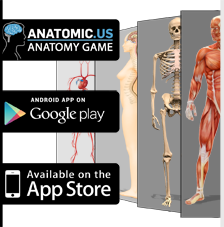Zygomaticus Minor Muscle
Musculus zygomaticus minor is the Latin pronunciation for Zygomaticus Minor Muscle. It is one of the two Zygomaticus Muscles other being the Zygomaticus Major Muscle. It is a muscle for Facial Expressions.
read more
Omohyoid Muscle Trapezius Muscle Masseter Muscle Orbicularis Oris Muscle Mentalis Muscle Depressor Labii Inferioris Muscle Depressor Anguli Oris Muscle Buccinator Muscle Zygomaticus Major Muscle Zygomaticus Minor Muscle Levator Labii Superioris Muscle Temporal Muscle Orbicularis Oculi Muscle Sternocleidomastoid Muscle Frontalis Muscle
Zygomaticus Minor Muscle
ANATOMY
Zygomaticus Minor Muscle is one of the 36 facial muscles. The muscle arises from the Malar Bone (Zygomatic Bone) and connects with Orbicularis Oculi (muscle of face that closes eyelids). Arising from the Zygomatic Bone, it is a thin band of muscle on each side of face. The muscle is attached to the cheek below each eye and extends up to the end of upper lip.
INNERVATION
Zygomaticus Minor Muscle is innervated by Zygomatic and Buccal branches of Facial Nerve, Cranial Nerve VII.
BLOOD SUPPLY
The oxygenated blood to the muscle is supplied by Facial Artery and Transverse Facial Artery.
FUNCTION
The main function of this muscle is to help in raising the Upper lip and work with other muscles to make the Nasolabial Furrow (smile line) more prominent. This muscle is also used for making facial expressions like discomfort and sadness.
CLINICAL SIGNIFICANCE
Inability to form Facial expressions may be the first symptom for the damage of these Facial Muscles due to the nerve damage. Damage to facial nerve causes in Facial Paralysis. This type of damage occurs due to some reasons given below.
-
Stroke
-
Bell Palsy
-
Parotid Salivary Gland Cancer
-
Infectious Myositis
-
Myopathy
Report Error


